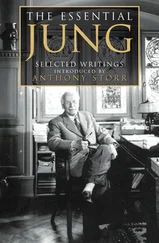1 ...6 7 8 10 11 12 ...16 A modem man lives in sleep, in sleep he is born and in sleep he dies. About sleep, its significance and its role in life, we will speak later. But at present just think of one thing, what knowledge can a sleeping man have? And if you think about it and at the same time remember that sleep is the chief feature of our being, it will at once become clear to you that if a man really wants knowledge, he must first of all think about how to wake, that is, about how to change his being . 3
By participating in what became known as ‘The Work’, the fortunate few might become more able to co-ordinate the three centres through self-observation. Instead of living in a dream in which a series of fleeting ‘I’s’ succeeded one another, the awakened individual would cease living ‘in quotation marks’, achieve a new unity, and, by means of this, direct his own destiny, or become able to do , as Gurdjieff phrased it. ‘To do means to act consciously and according to one’s will.’ 4This change in consciousness, like everything else, has a material basis, which in this case manifests itself as a trace chemical compound in the brain.
The keystone of his teaching, of course, was that no progress – no human progress, that is – can be accomplished except on an individual basis. Group work is valuable only in the sense that it helps the individual to achieve individual self-perfection. 5
J. G. Bennett, who died in 1974, first met Gurdjieff in 1920. In his book Gurdjieff: Making a New World , Bennett devoted three chapters to Gurdjieff’s travels and search for esoteric wisdom. Both J. G. Bennett and James Moore have to admit that it is impossible to trace Gurdjieff’s travels with any degree of accuracy. Although careful never to commit himself whole-heartedly, Bennett clearly believed in the literal truth of the tradition that, somewhere in Central Asia, there is a group of wise men or ‘Masters of Wisdom’ who watch over the destiny of mankind and intervene from time to time to alter the course of events by introducing new ideas and new modes of thinking. Bennett suggests that Gurdjieff made contact with such a group; an ‘Inner Circle of Humanity’, perhaps the Sarmoun brotherhood, whose members were highly developed spiritually and able to generate higher energies. Bennett wrote:
The true significance of such a group must lie in its mission. The more that one becomes aware of the spiritual realities, the more convinced does one become that a very great action is now proceeding in the world. The task before us is to help mankind to make the difficult and dangerous transition to a new epoch. If we find evidence that Gurdjieff was concerned in this task and moreover that he opened the way for us to participate in it, we shall have gone a long way to connecting him with the ‘Inner Circle’. 6
We shall again encounter the idea that mankind is on the threshold of a new epoch when discussing the ideas of Jung.
Bennett was a long-term disciple of Ouspensky, and was therefore at one remove from the master himself. But he remained intermittently in touch with Gurdjieff, and saw him frequently during the last two years of his life. Bennett believed that Gurdjieff’s ideas and teaching had transformed his own life, and himself ran groups along Gurdjieffian lines in London, sometimes with dire effects upon participants, as I remember from seeing one or two of them as psychiatric patients. Nevertheless, Bennett followed a path characteristic of those who constantly search for esoteric wisdom without ever quite finding what they want.
Bennett … broke from the Gurdjieffian mainstream in 1955 to pursue eclectic affiliations (being inter alia ‘opened’ into Subud by Hosein Rofé, initiated by the Maharishi Mahesh Yogi, received into the Roman Catholic Church, and introduced to the ‘Invisible Hierarchy’ by Idries Shah). 7
The Russian revolution of 1917 caused Gurdjieff to move to Tiflis in Georgia and then to Constantinople and on to Berlin. His exhausting and sometimes dangerous journeys are chronicled by his biographer, James Moore. His close associates Thomas and Olga de Hartmann joined him in one of his stopping places; Essentuki in the Caucasus. This was in August 1917, not long after Kerensky had been announced as Prime Minister of the coalition government which followed the abdication of the Tsar. Gurdjieff then suddenly announced that he was going to Tuapse, on the Black Sea. The dutiful de Hartmanns followed. Their account of an exhausting nocturnal walk forced on them by Gurdjieff in spite of the fact that they were unsuitably clad and also dead tired is a striking example of the autocratic and unreasonable demands which Gurdjieff made on his followers which they nevertheless slavishly obeyed. Olga de Hartmann’s feet were so swollen and bleeding that she could not put on her shoes and had to walk barefoot. Thomas de Hartmann had missed a night’s sleep because he had been ordered to stay on guard. Their limbs ached and they were both exhausted; but they went on nevertheless.
Mr. Gurdjieff demanded from us a very great effort, especially difficult because we did not know when it would end. We suffered and would have been only too happy to rest; but there was no protest in us, because the one thing we really wished to do was to follow Mr. Gurdjieff. Beside that, everything else seemed unimportant. 8
It was a recurrent pattern of behaviour. The de Hartmanns claim that these demands were made upon them as a way of teaching them to overcome emotional and physical difficulties. Gurdjieff certainly pushed people to the limit of their physical capacities; and some discovered that they had more powers of endurance than they had ever suspected.
When short of money, he survived by dealing in caviar and carpets. He had hoped to settle in England, but the Home Office were suspicious of him and would not permit him to stay unless he did so as a private individual, which would have meant abandoning his nucleus of followers. Eventually, the generosity of Lady Rothermere, the estranged wife of the newspaper magnate, together with funds from other wealthy supporters, made it possible for him to set up his Institute for the Harmonious Development of Man at the Château du Prieuré, a large estate near Fontainebleau, in France.
‘The Work’ was carried out in groups and included special exercises and dances, exhausting physical work, training in memory and self-observation, together with lectures given by Gurdjieff at irregular intervals. Some of those who participated in the so-called ‘Sacred Dances’ found them more valuable than Yoga or any other training affecting physical awareness. Complete concentration on whatever was being carried out at the time was an essential part of Gurdjieff’s message and of his own behaviour. Insistence on living intensely in the present moment and discarding the concern with past or future which interferes with fully experiencing the here-and-now, is not confined to Gurdjieff’s teaching. Zen also treats the past and future as fleeting illusions. It is only the present which is eternally real. 9
Gurdjieff was a dictator. He had the capacity so completely to humiliate his disciples that grown men would burst into tears. He might then show the victim special favour. He demanded unquestioning obedience to his arbitrary commands. For example, he once suddenly announced that none of his followers might speak to each other within the Institute. All communication must be by means of the special physical movements he had taught them. Gurdjieff sometimes imposed fasting for periods up to a week without any lessening of the work load. His authority was such that his followers convinced themselves that these orders were for their own good. Those less infatuated are likely to think that, like other gurus, Gurdjieff enjoyed the exercise of power for its own sake. There were also dinners at which large quantities of alcohol were drunk, and large sums of money extracted from the diners.
Читать дальше











